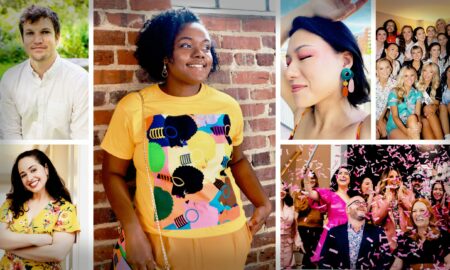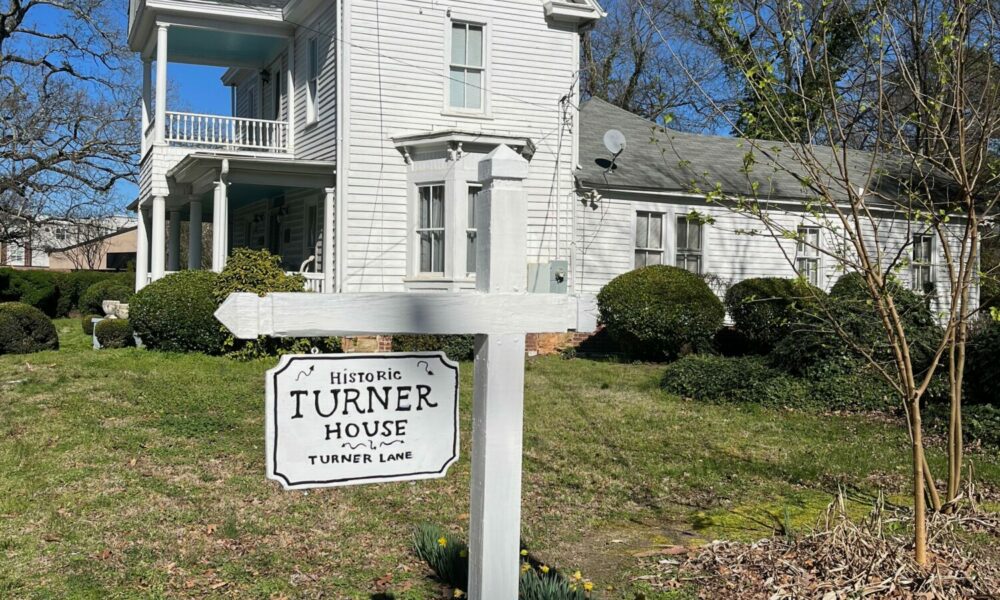

Today we’d like to introduce you to Cheryl Crooms Williams.
Hi Cheryl, thanks for sharing your story with us. To start, maybe you can tell our readers some of your backstory.
The Historic Turner House Foundation, Inc., a 501 (c) 3 non-profit, is an extension of 10 years’ experience of telling the stories of the Villagers of Historic Oberlin Village in Raleigh, NC. These untold stories were left out of the history of NC, and our organization strives to continue to be an educator and a preservationist of this history. Our mission is to expand knowledge and offer positive experiences in the areas of addressing historic issues founded in the African American experience before and during the 1800’s and early 1900’s. We want to continue to build on past and current efforts in lectures, walking tours, historic projects, and preservation projects to encourage cultural and racial reconciliation and understanding.
I am a self-described history enthusiast, committed to education, preservation, and honoring the heroes in our community. A descendant of enslaved people whose stories uplift their experiences from enslavement to freedom to prosperity. I do this work to uncover stories, not only of my family but others who have impacted our history. I want to help others connect with their ancestry and history. Black Indigenous People of Color (BIPOC) cultural contributions have significantly impacted the tapestry we call America. The more we share our histories and traditions, the more we learn how each of us has contributed to the history of our country. We are more similar than different. It takes a village to build a better future.
I started this journey of discovery in 2001 when my daughter’s fourth-grade project was to create a family tree. She talked to relatives on both sides of our family and was able to learn so much about the lives of our people. My interest in history led me to working with others who wanted to create programing to educate the community of the men and women whose achievements made the community better. My mother’s family was rooted in a thriving community founded by free blacks in the 1850s. The village, a Reconstruction Era settlement that welcomed newly freed enslaved folk who would make a significant impact to North Carolina and the nation holds multitudes of untold stories… Through walking tours, oral history projects, presentations, and projects with local scholars we have uncovered a motherlode of stories and have shared what we learned.
We launched the Historic Turner House Foundation Inc. in August 2022 to bring these wonderful stories to the community and to provide history lovers the experience of what daily life c. 1900 was like living in a historic home owned by an African American family through in-person tours. History buffs may get a lesson that links one family’s experience with the historic events of the time. The house was constructed by John T. Turner, an African-American entrepreneur, and his wife Mary. The intact Neoclassical I-House was later expanded into a two-story house by the Turners in 1910. This remodeling indicated his growing wealth and stature. While the I-House style is more often seen on agricultural landscapes, Oberlin was more rural in the late nineteenth century. We invite visitors to the area to visit the site which is on the National Register of Historic Places. In-person tours are by appointment at www.historicturnerhouse.org.
This 134-year-old property was constructed in 1889. Turner and several generations of his family were enslaved by the Cameron family, one of the largest slaveholders in North Carolina. This house and its contents represents a family and other families whose life journey traveled from enslavement to freedom to prosperity. John and Mary built this house in 1889 on 7/8 of an acre lot. It is listed on the National Register of Historic Places under two criteria: Criteria C for the architecture and Criteria A for African-American ethnic heritage in social history. The home was purchased by John Thompson Turner, an African American entrepreneur, and his wife Mary Dickerson for $500 from RH Battle, an attorney who practiced in Raleigh with his partner Samuel Mordecai on February 5, 1889.That’s significant because Mordecai married Margaret Cameron, who inherited many of the Turner family when her father died. When the family was freed from enslavement, they farmed in Warrington County with John’s father, Walker Turner.
John & Mary were married on June 28, 1888, and the marriage certificate is witnessed by William Graves, who was a prominent person here, evidencing they were living in Oberlin by then. Mary’s family is thought to have come to Raleigh with the white family that her mother cooked for. They had five children: Lula in 1889, Annie in 1891, Margaret 1894, John Jerome in 1898, and Ira/Ezra in 1899.
Would you say it’s been a smooth road, and if not, what are some of the biggest challenges you’ve faced along the way?
My journey has been slow and steady. As time permitted, I learned about my family history and the village history through working with other volunteers, utilizing local resources online, listening to historians and reading about culture and history. Once I retired from a career in real estate financing at Chase Mortgage in Los Angeles Ca where I also raised my family, I relocated to Raleigh, and I had more time to work on this project. This work is the culmination of about 10 years of community work with the Friends of Oberlin Village. My challenge was moving forward. And figuring out a way to present the historic data to those who are interested in history and volunteerism. Once I learned that my family was enslaved and gained access to ledgers, records, census information, and other historical data, I had to absorb this trauma my ancestors experienced… I could not express the disbelief, grief, and anger I felt that my folk had to endure the inhumane degradation that is inherent in the institution of trafficking humans for forced servitude. The purposeful dehumanization that is required to sustain the system of slavery is hard to accept. Then I realized that this free labor pool did miraculous feats of work under pressure that resulted in the building of this place called America, and I felt proud and wanted to share with others the untold stories. Other Black Indigenous People of Color (BIPOC) contributed as well. I became proud of the way my ancestors and others were able to overcome the many systemic obstacles to move from enslavement to freedom to prosperity. I was inspired to share these stories about the impact my family and others made on history.
As you know, we’re big fans of you and your work. For our readers who might not be as familiar, what can you tell them about what you do?
I worked 29 years in financial services. Starting with Bank of America, Chase Manhattan Mortgage & ending at One United Bank, a Black-owned bank. I helped first-time homebuyers and others to purchase and refinance their homes and investment properties.
The same passion for uncovering information to share with folk to help them accomplish their goals is the thread that is consistent in my endeavors. The work of the Historic Turner House Foundation, Inc. continues in that tradition. The more we know about our history, the stronger we are in stepping out to do new things, and we are more likely to succeed when we try. I am most proud when something I shared or did leads to the success of another. My willingness to share roll up my sleeves to work alongside like-minded folk is what sets me apart from others. I look for the light in others.
Are there any books, apps, podcasts, or blogs that help you do your best?
Most recently, I have read historic, cultural fiction, and non-fiction books. I was impacted by the 1619 project by Hannah Nicole Jones and Caste by Isabel Wilkerson
Toni Morrison is my favorite author, and her book Beloved is one of my favorites.
Recent reads that I would recommend The Nickel Boys, Underground Railroad by Colson Whitehead,
Historic Black Neighborhoods of Raleigh by Carmen Wimberly Cauthen, the Violin Conspiracy by Brendan Slocumb
Walter Mosely, Octavia Butler, Barbara Kingsolver are wonderful writers, too.
I listen to podcasts in spurts. GirlTrek.org/black history bootcamp, 1619, and This American Life hosted by Ira Glass
I like poetry, and Nikki Giovanni, Lucille Clifton, Maya Angelou, and Emily Dickinson are some of my favorites.
Haikus are a special form of poetry I appreciate.
Sharing my stories
Is my calling and passion
Uncovering truths
Contact Info:
- Website: www.historicturnerhouse.org
- Instagram: oberlinhistorian
- Facebook: Historic Turner House & Tours
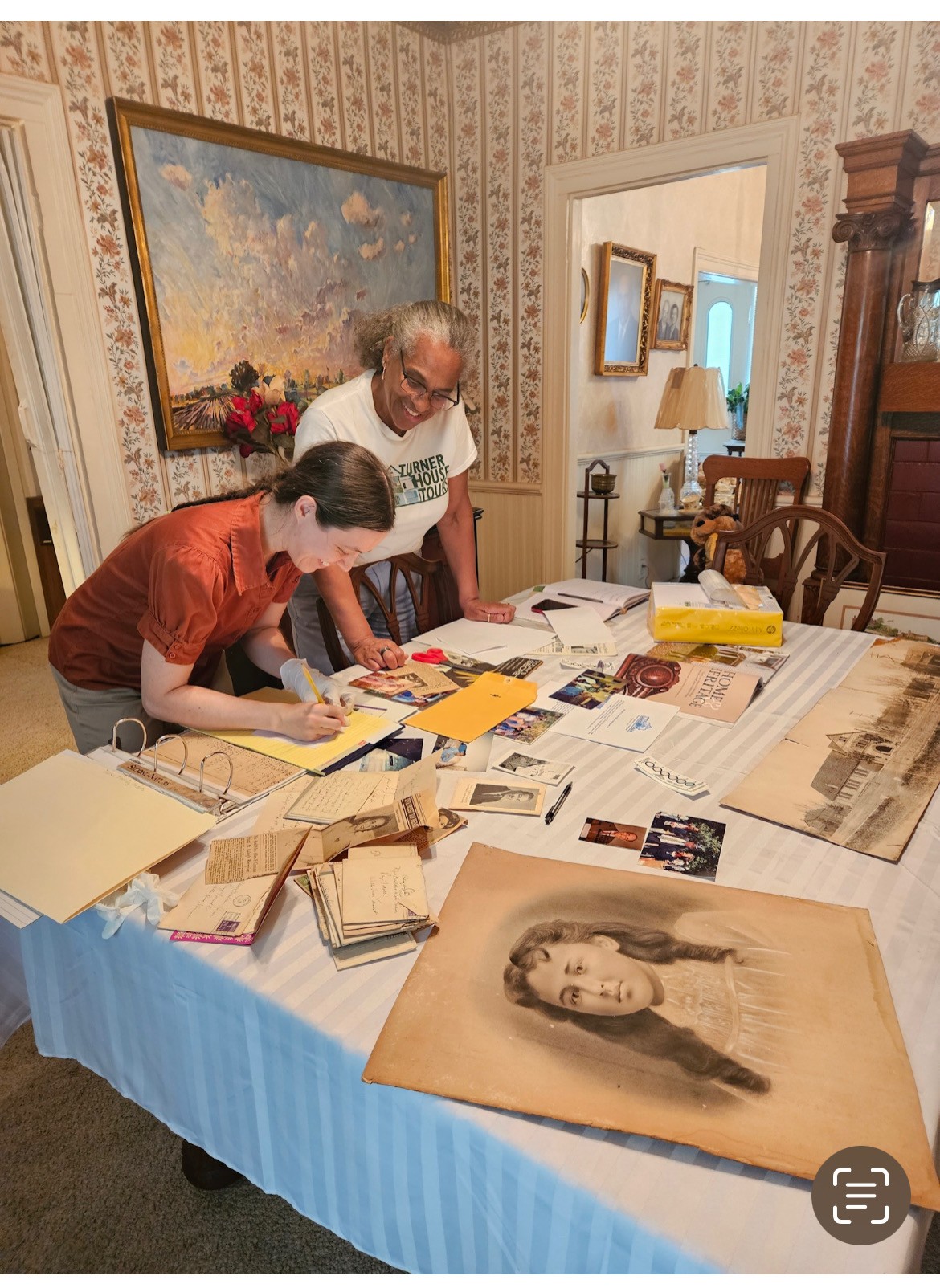
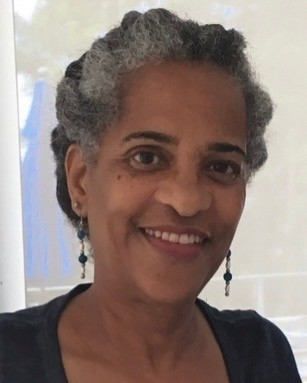
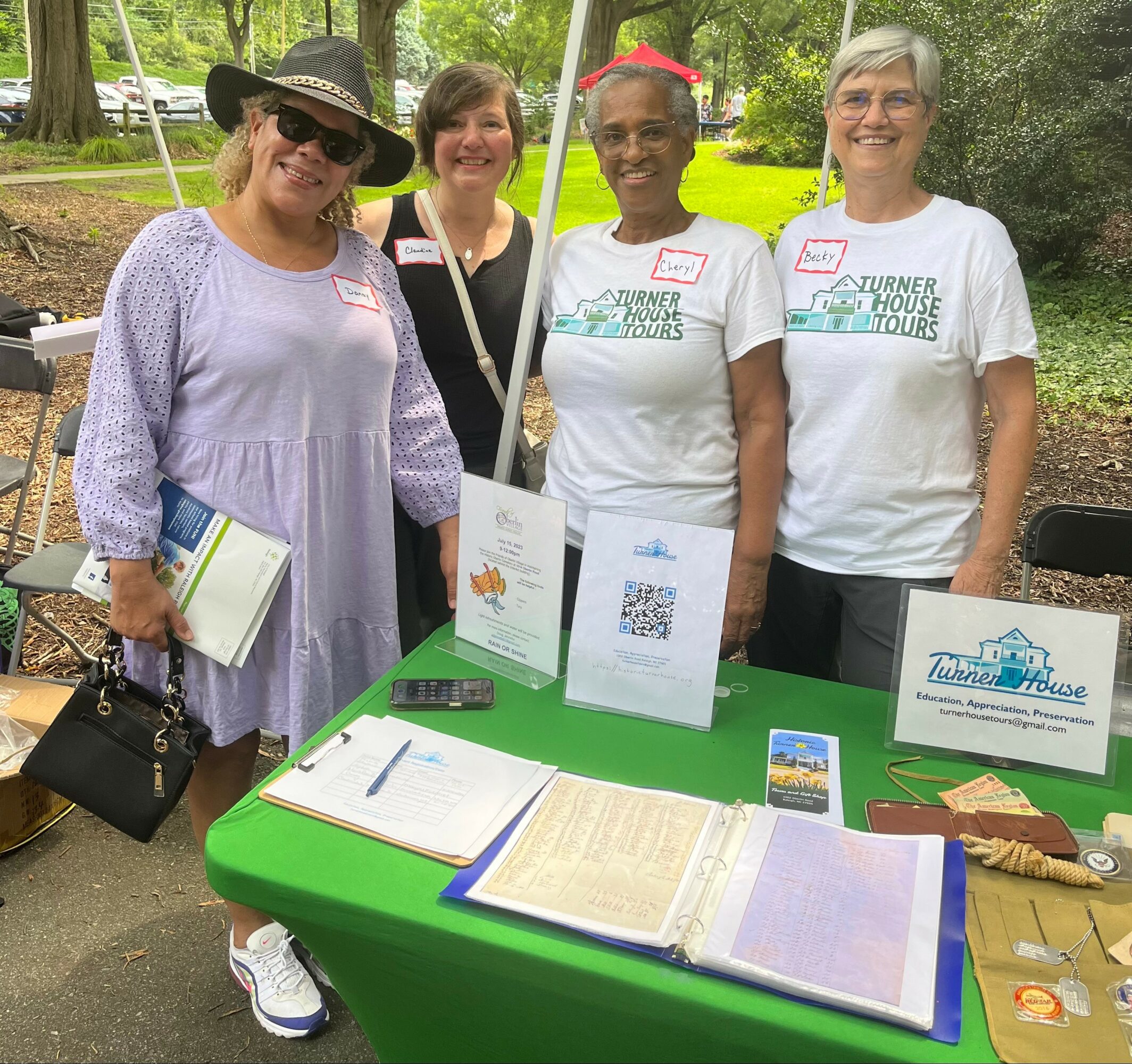
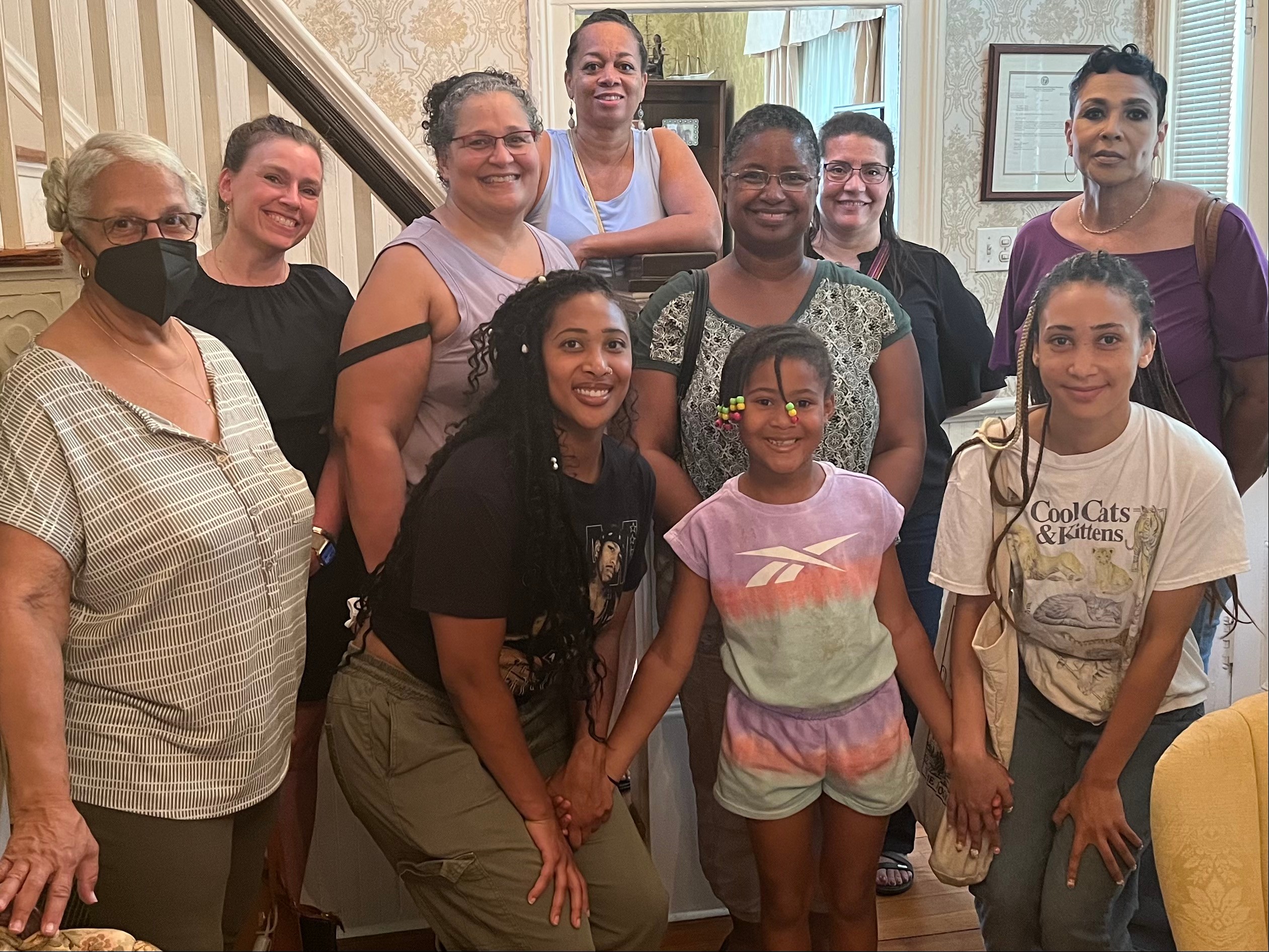
Image Credits
Cheryl Williams

